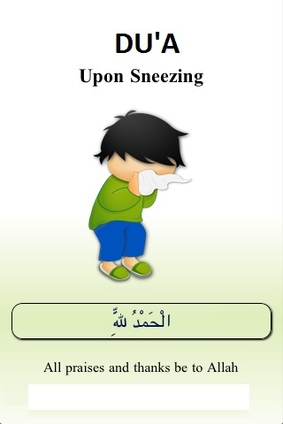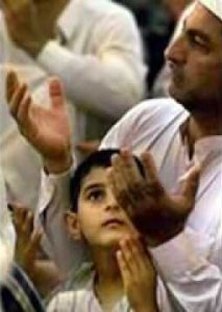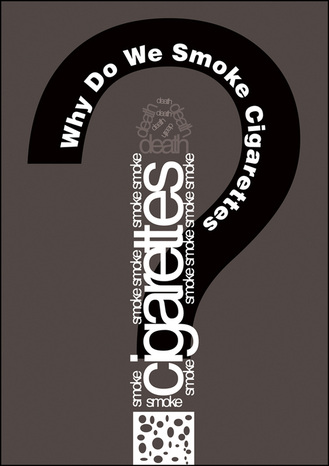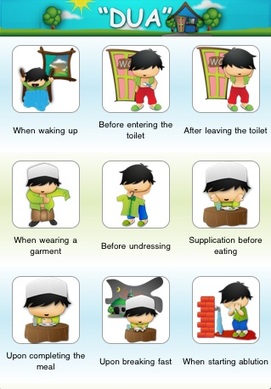i

Lesson 1
Grade 2 & 3
(read the text)
Du’a is important to us as Muslims since it’s a form of worship.
Supplication or Dua to Allah is of paramount importance in Islam. The benefits of supplication are immense as are its virtues. Supplication is an act of obedience to Allah. By offering supplications, we are actually carrying out Allah’s command.
Allah says: “And your Lord said: Supplicate to Me, I shall answer you.” [Sûrah Ghâfir: 60]
There are many supplications that the Prophet (peace be upon him) taught us to say in different situations. With this in mind, below are some free printable supplications.
I have also included the files to the specific Islamic Bulletin Boards ( grade 1&2) to make building your board much easier. Use some or all, it’s up to you!
WakeUp What to say upon waking up. Please note there are many other duas narrated that should be said before sleeping. Please refer to the book, fortress of a Muslim for more information.
BeforeSleep. What better way is there to end the day than by remembering Allah, Most High? If you think it’s required, download this dua from the below link and put it near your childs bed so they are reminded to say it.
Enter&ExitToilet. The Religion of Islam is a complete way of life. There are even dua for entering and exiting the toilet. We should teach these duas to our children as it is an easy way to earn rewards and remember Allah.
EnteringHome. As muslims, we should make sure our homes are a place where Allah is remembered. This dua should be said as we are entering our homes.
LeavingHome. This dua is to be said when leaving the home.
BeforeEat. This is a very simple dua to learn and will inshaAllah ensure there is blessings in the food that is eaten.
AfterEat. We should remind ourselves and our children that all provision and blessings are from Allah and that we should be grateful to Him. This supplication should be said after we finish eating. This sheet also includes a reminder about how Allah is pleased with a person who praises Allah after eating and drinking.
Stir in the night Learn this dua whenever you wake up at night frightened.
Protection4Children Read this dua daily to seek Allah’s protection for yourself and your family.
Afraid2sleep Read this du'a if you are afraid to go to sleep or feel lonely or depressed.
Lesson 2
Islamic Bulletin Boards
For grade 1 to 3 (Please click on the links for a print out)
File for Du’a is Worship Header: banner2.
Border accent file: Accent decos du’a.
File for Best time for Making Du’a: Best time for making Du’a File for Reminders for Making Du’a: Reminders for making du’a
For grade 1 to 3 (Please click on the links for a print out)File for the border: du’a border2 File for the Tracker:Du’a Tracker File for Black and white Du’a cards: Du’a Cards text Black & White File for Colored Du’a Cards: Du’a Cards text Color
Grade 2 & 3
(read the text)
Du’a is important to us as Muslims since it’s a form of worship.
Supplication or Dua to Allah is of paramount importance in Islam. The benefits of supplication are immense as are its virtues. Supplication is an act of obedience to Allah. By offering supplications, we are actually carrying out Allah’s command.
Allah says: “And your Lord said: Supplicate to Me, I shall answer you.” [Sûrah Ghâfir: 60]
There are many supplications that the Prophet (peace be upon him) taught us to say in different situations. With this in mind, below are some free printable supplications.
I have also included the files to the specific Islamic Bulletin Boards ( grade 1&2) to make building your board much easier. Use some or all, it’s up to you!
WakeUp What to say upon waking up. Please note there are many other duas narrated that should be said before sleeping. Please refer to the book, fortress of a Muslim for more information.
BeforeSleep. What better way is there to end the day than by remembering Allah, Most High? If you think it’s required, download this dua from the below link and put it near your childs bed so they are reminded to say it.
Enter&ExitToilet. The Religion of Islam is a complete way of life. There are even dua for entering and exiting the toilet. We should teach these duas to our children as it is an easy way to earn rewards and remember Allah.
EnteringHome. As muslims, we should make sure our homes are a place where Allah is remembered. This dua should be said as we are entering our homes.
LeavingHome. This dua is to be said when leaving the home.
BeforeEat. This is a very simple dua to learn and will inshaAllah ensure there is blessings in the food that is eaten.
AfterEat. We should remind ourselves and our children that all provision and blessings are from Allah and that we should be grateful to Him. This supplication should be said after we finish eating. This sheet also includes a reminder about how Allah is pleased with a person who praises Allah after eating and drinking.
Stir in the night Learn this dua whenever you wake up at night frightened.
Protection4Children Read this dua daily to seek Allah’s protection for yourself and your family.
Afraid2sleep Read this du'a if you are afraid to go to sleep or feel lonely or depressed.
Lesson 2
Islamic Bulletin Boards
For grade 1 to 3 (Please click on the links for a print out)
File for Du’a is Worship Header: banner2.
Border accent file: Accent decos du’a.
File for Best time for Making Du’a: Best time for making Du’a File for Reminders for Making Du’a: Reminders for making du’a
For grade 1 to 3 (Please click on the links for a print out)File for the border: du’a border2 File for the Tracker:Du’a Tracker File for Black and white Du’a cards: Du’a Cards text Black & White File for Colored Du’a Cards: Du’a Cards text Color
|
Lesson 3: Grade 4
Ask only of Allah We have learned that we make duaas only to Allah. We can ask our parents for things we want/need, but we remember that they cannot grant/give us everything; only Allah can. “Do not make du’a to anyone alongside Allah.” (Quraan:70:18) “Say (O’ Muhammad): I make du’a unto Allah only, and I ascribe unto Him no partner.” (Quraan:70:20) We must also remember (or learn) that Duaa is worship ---The Prophet (may Allah praise him) said: “Du’aa is worship.” The only reason that Allah put us on this earth is to worship Him. (Surah Dhariyah: 56) So isn’t it great that when we are asking Allah for something that we need/want, we are getting the reward for obeying Him? When we make duaa to Allah, we are doing what we were put on this earth to do; worship Allah. Check Up! What does supplicating mean? What does the word "Du'a" mean? To whom do we make dua? |
Lesson 4
Grade 5&6

(Read the story)
Once, a ten-year-old boy was praying feverishly in prostration, “O Allah, the Most Merciful, the Magnificent, Make Faisalabad
(a small city of Pakistan) the capital of Pakistan…”
His mother overheard him and asked, “Why would you pray so, my son?” The boy answered, “Well, Mama, we had a question on our final exam which asked, 'What is the capital of Pakistan?' and I mistakenly put 'Faisalabad' as my answer!"
Although we can laugh at the innocence of a child, his trust in his supplication to Allah (swt) and his belief that his prayer will be heard is admirable; as a matter of fact, it is ideal. We also should have that kind of trust, that Allah can do anything, and that if only turn to Him our pain will be soothed and our problems given solutions.
Allah (swt) states in the Quran :
And when My servants ask you concerning Me, then surely I am very near; I answer the prayer of the suppliant when he calls on Me, so they should answer My call and believe in Me that they may walk in the right way. (Surat al-Baqara, 2:186)
Lesson5
The method and art of making dua:
Making dua in the court of Allah the Exalted is an art and has an etiquette which if considered, can result in the opening of many doors of Allah’s bliss and bounties. Some of the factors that help are listed below:
Praise Allah (swt) and call Him by His beautiful names and attributes before setting out to ask Him for favors. Indeed Allah is praiseworthy and never tires of hearing and fulfilling duas of all of His creatures. Allah (swt) states in the Quran:
Say: Call upon Allah or call upon, the Beneficent Allah; whichever you call upon, He has the best names; and do not utter your prayer with a very raised voice nor be silent with regard to it, and seek a way between these. (Surat al-Isra, 17:110)
Be Humble:
When you are praying, do not act as if you are enjoined the right to deserve whatever you are asking for. Make sure that you know that your Lord is the Most Gracious and you the Most Humble. Acknowledge your status before the Magnificent and do not be proud.
“Call your Lord humbly and secretly. He does not love those who transgress the boundaries.”(Sura al-Araf: 55)
Let Allah the Most High decide:
If you are asking for something which you really like, always remember that whatever you are asking for may not be always in the best interest. Allah (swt) states in the Quran:
“It may be that you hate something when it is good for you and it may be that you love something when it is bad for you. Allah (swt) knows and you know not.” (Sura al-Baqara, 2:216) Always let Allah (swt) decide what is right for you and what is wrong for you instead of implying or imposing that you know better.
Believe in your dua:
The most critical factor in a dua being accepted or not, is the belief of the seeker in his or her supplication’s being accepted. Abu Hurairah (May Allah be pleased with him) reported, “The Messenger of Allah (PBUH), ‘The supplication of every one of His slaves will be granted as long as he does not get impatient and say, “I supplicated to my Rubb again and again but I do not think my prayer will be answered." [Al-Bukhari, Muslim].
Also, Allah (swt) Himself states, “Do not despair of solace from Allah (swt). No one despairs of solace from Allah except for people who disbelieve.” [Sura Yusuf, 87] Therefore, it is imperative that we do not grow hopeless of Allah (swt)’s Mercy but keep on praying consistently and with patience.
Pray when happy and sad:
Allah (swt) states at numerous places that a human being only remembers Him in the times of distress but forgets Him when he has tears of joy in his eyes. We all know that we do not feel good when our friends remember us in the times of distress but abandon us in the time of need. Though Allah (swt)’s Rahma is infinite and His forgiveness is boundless, yet He expects us to keep on praying even when He has given us good times. Therefore, we should never forget our Lord when our heart’s joys know no bounds or when we are shouting in exhileration.
Remember others during prayers:
Allah (swt) says: “And ask forgiveness for your sins and also for the sin of believing men and women.” (Sura Muhammad, 19)
Prophet Muhammad (PBUH) said: “The dua of a Muslim for his brothers in his absence is readily accepted, an angel is appointed to his side, whenever he makes a beneficial dua for his brother, the angel says, ‘Ameen’, and May you be blessed with the same”. (Sahih Muslim).
So a great way of having a dua being accepted in your favor is to wish the same for your brother with all your heart and importune the Creator on his behalf. This way, not only will your dua be accepted, but you will become the cause of happiness of your brother as well.
Once, a ten-year-old boy was praying feverishly in prostration, “O Allah, the Most Merciful, the Magnificent, Make Faisalabad
(a small city of Pakistan) the capital of Pakistan…”
His mother overheard him and asked, “Why would you pray so, my son?” The boy answered, “Well, Mama, we had a question on our final exam which asked, 'What is the capital of Pakistan?' and I mistakenly put 'Faisalabad' as my answer!"
Although we can laugh at the innocence of a child, his trust in his supplication to Allah (swt) and his belief that his prayer will be heard is admirable; as a matter of fact, it is ideal. We also should have that kind of trust, that Allah can do anything, and that if only turn to Him our pain will be soothed and our problems given solutions.
Allah (swt) states in the Quran :
And when My servants ask you concerning Me, then surely I am very near; I answer the prayer of the suppliant when he calls on Me, so they should answer My call and believe in Me that they may walk in the right way. (Surat al-Baqara, 2:186)
Lesson5
The method and art of making dua:
Making dua in the court of Allah the Exalted is an art and has an etiquette which if considered, can result in the opening of many doors of Allah’s bliss and bounties. Some of the factors that help are listed below:
Praise Allah (swt) and call Him by His beautiful names and attributes before setting out to ask Him for favors. Indeed Allah is praiseworthy and never tires of hearing and fulfilling duas of all of His creatures. Allah (swt) states in the Quran:
Say: Call upon Allah or call upon, the Beneficent Allah; whichever you call upon, He has the best names; and do not utter your prayer with a very raised voice nor be silent with regard to it, and seek a way between these. (Surat al-Isra, 17:110)
Be Humble:
When you are praying, do not act as if you are enjoined the right to deserve whatever you are asking for. Make sure that you know that your Lord is the Most Gracious and you the Most Humble. Acknowledge your status before the Magnificent and do not be proud.
“Call your Lord humbly and secretly. He does not love those who transgress the boundaries.”(Sura al-Araf: 55)
Let Allah the Most High decide:
If you are asking for something which you really like, always remember that whatever you are asking for may not be always in the best interest. Allah (swt) states in the Quran:
“It may be that you hate something when it is good for you and it may be that you love something when it is bad for you. Allah (swt) knows and you know not.” (Sura al-Baqara, 2:216) Always let Allah (swt) decide what is right for you and what is wrong for you instead of implying or imposing that you know better.
Believe in your dua:
The most critical factor in a dua being accepted or not, is the belief of the seeker in his or her supplication’s being accepted. Abu Hurairah (May Allah be pleased with him) reported, “The Messenger of Allah (PBUH), ‘The supplication of every one of His slaves will be granted as long as he does not get impatient and say, “I supplicated to my Rubb again and again but I do not think my prayer will be answered." [Al-Bukhari, Muslim].
Also, Allah (swt) Himself states, “Do not despair of solace from Allah (swt). No one despairs of solace from Allah except for people who disbelieve.” [Sura Yusuf, 87] Therefore, it is imperative that we do not grow hopeless of Allah (swt)’s Mercy but keep on praying consistently and with patience.
Pray when happy and sad:
Allah (swt) states at numerous places that a human being only remembers Him in the times of distress but forgets Him when he has tears of joy in his eyes. We all know that we do not feel good when our friends remember us in the times of distress but abandon us in the time of need. Though Allah (swt)’s Rahma is infinite and His forgiveness is boundless, yet He expects us to keep on praying even when He has given us good times. Therefore, we should never forget our Lord when our heart’s joys know no bounds or when we are shouting in exhileration.
Remember others during prayers:
Allah (swt) says: “And ask forgiveness for your sins and also for the sin of believing men and women.” (Sura Muhammad, 19)
Prophet Muhammad (PBUH) said: “The dua of a Muslim for his brothers in his absence is readily accepted, an angel is appointed to his side, whenever he makes a beneficial dua for his brother, the angel says, ‘Ameen’, and May you be blessed with the same”. (Sahih Muslim).
So a great way of having a dua being accepted in your favor is to wish the same for your brother with all your heart and importune the Creator on his behalf. This way, not only will your dua be accepted, but you will become the cause of happiness of your brother as well.
Lesson 6
|
|
#F3E9C8

Lesson 8
Grade 6
Goal: To create an ad that shows why Allah SWT forbids/dislikes harmful behaviours like smoking, drinking alcohol or doing drugs.
Criteria:
- Choose one harmful behaviour, and list the harmful effects (minimum 3)
- Include a hadith/ or ayah from Quran that mentions this act and / or promotes good health
Include:
- a slogan
- key words (two about your thoughts of the behaviour. eg. unhealthy!, disease!)
- how doing this act would make you feel
- an image to capture your message
(keep the remaining amount for future assignments!)
Best wishes from your teacher, Hamid Ben Hachemi
Grade 6
Goal: To create an ad that shows why Allah SWT forbids/dislikes harmful behaviours like smoking, drinking alcohol or doing drugs.
Criteria:
- Choose one harmful behaviour, and list the harmful effects (minimum 3)
- Include a hadith/ or ayah from Quran that mentions this act and / or promotes good health
Include:
- a slogan
- key words (two about your thoughts of the behaviour. eg. unhealthy!, disease!)
- how doing this act would make you feel
- an image to capture your message
(keep the remaining amount for future assignments!)
Best wishes from your teacher, Hamid Ben Hachemi



